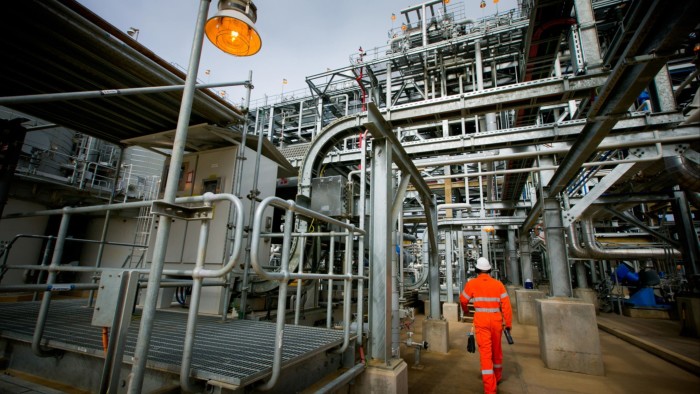This article is an on-site version of our Energy Source newsletter. Premium subscribers can sign up here to get the newsletter delivered every Tuesday and Thursday. Standard subscribers can upgrade to Premium here, or explore all FT newsletters
Hello and welcome back to Energy Source, coming to you from New York and Sydney.
Fatih Birol, the head of the International Energy Agency, has warned the lessons of the energy crisis following Russia’s invasion of Ukraine “have not yet been fully understood”. His comments to my colleague Malcolm Moore come as global leaders descend on London for discussions on energy security.
UK Prime Minister Sir Keir Starmer will this week host Ursula von der Leyen, president of the European Commission, as well as ministers from the US, Japan, France, Germany and India, and the heads of dozens of energy companies, for a two-day summit on how to ensure resilient supplies of energy in a volatile global market.
Birol, who organised the summit jointly with the UK government, shared his “three golden rules” for energy security, plus what he sees as the emerging risks to energy supplies.
In today’s main item we stick to the topic of energy security. Soaring electricity costs in Australia have pushed the issue into the spotlight ahead of next month’s election. Our correspondent Nic Fildes looks at the opposition party’s plan — which it calls “Australian Gas for Australians” — to lower energy bills for consumers.
Thanks for reading — Benjamin
Energy security takes centre stage in Australian election campaign
The economics of natural gas supply would not normally feature front and centre in an election campaign. Yet the soaring cost of electricity in Australia has opened up a new seam in debates over who will form a government in May’s vote.
Peter Dutton, the rightwing leader of the opposition Liberal party, has spent the past year pushing energy policy to the fore. His party initially threw its weight behind nuclear power to undermine the Labor government’s “reckless” policies on renewable energy.
He backed that up with a pledge to temporarily reduce petrol excise — from 50.8 Australian cents a litre to 25.4 cents. But it was an interventionist plan to force gas companies to divert up to 20 per cent of supply to the domestic market that took centre stage in the debates.
Dutton’s premise is that creating a domestic gas reserve would lead to lower energy bills for consumers — a key pain point for voters heading into the election. The Labor government has introduced subsidies on electricity bills to alleviate further household pain but a wider debate about energy supply is shaping up.
The situation goes beyond bill shock. Australia’s east coast — where most of the population lives — has been warned of blackouts in the future. Meanwhile the country’s energy companies have for the first time started to contemplate buying gas on the open market to secure supplies.
Dutton’s reservation policy — which has been nationalistically dubbed “Australian Gas for Australians” — has dashed hopes within the exploration sector that a supply shortage and the precariousness of global trade on which the country’s economy relies could lead to less regulation, not more, to encourage investment.
Dutton’s gas play coincided with the Australian Domestic Gas Outlook conference in Sydney earlier this month which gave executives from some of the largest energy companies an opportunity to respond. Shell said market interventions applied retrospectively do not help increase supply.
ConocoPhillips said continued interventions would “erode and constrain” investor confidence in the country. Chevron said energy security was “an easy target to become a political football”.
Japanese think-tanks also expressed alarm about restrictions denting the potential profits of companies that trade Australian gas across Asia.
But Kevin Morrison, an energy finance analyst at the Institute for Energy Economics and Financial Analysts, said those arguments appear hollow. He argued Dutton’s policy has highlighted how Australia is producing gas at record levels but most of the resource is heading overseas to be traded for profit — a point that has politicised the energy market during the election campaign. “We don’t have a supply problem. We have an export problem,” he said. (Nic Fildes)
Power Points
-
Once famed for daring deals and exploration success, BP now trails its main rivals. Will going back to the basics restore the oil group’s fortunes?
-
China’s CATL has unveiled upgraded battery cells it claims can offer faster charging for electric vehicles than its rival BYD.
-
Saudi Arabia’s big businesses are embracing solar power as they seek to save on energy costs after the government eliminated electricity subsidies.
Energy Source is written and edited by Jamie Smyth, Myles McCormick, Amanda Chu, Tom Wilson and Malcolm Moore, with support from the FT’s global team of reporters. Reach us at energy.source@ft.com and follow us on X at @FTEnergy. Catch up on past editions of the newsletter here.
Recommended newsletters for you
Moral Money — Our unmissable newsletter on socially responsible business, sustainable finance and more. Sign up here
The Climate Graphic: Explained — Understanding the most important climate data of the week. Sign up here

